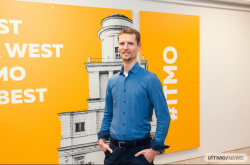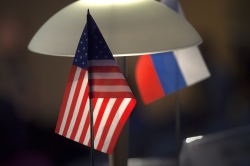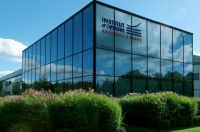When a third-year student I started to take part in serious research projects. I studied at Peter the Great St. Petersburg Polytechnic University; its` professor offered me to join a research connected with atomic physics and quantum optics.
As all large research centers the lab of Polytechnic University has contacts with international universities. Thus after entering PhD program I focused on quantum memory together with French colleagues from Pierre and Marie Curie University. To provide this activity I spent about half the whole course in France.
Taking part in various international conferences and seminars I made many contact with other European research centers. After the graduation I moved to Moscow to work at Russian Quantum Center. While researching random processes in polariton condensation I met with Ivan Shelykh, together with whom I joint a research project in Reykjavik. Then Mr. Shelykh talked me about ITMO Fellowship program and at the end of 2015 I came back to St. Petersburg.
I like working at ITMO University. First of all my colleagues and I are the same age, that is why it`s easy for me to get in contact with them. The researchers always try to help me even if my problem is not connected with their fields: they draw analogies with their research areas that help me to comprehend and solve my problem. Furthermore, Russian is my native language so I feel more comfortable communicating with compatriots. However it doesn`t mean that I will not work abroad. I continue to collaborate with international scientists to receive invaluable experience and learn new research methods and approaches. These practices make a researcher broad-minded and flexible.
My fundamental research project is connected with quantum memory in atomic systems. I started to research this field when I was a student. ITMO University experts deal with quantum cryptography, which helps to encode and protect data. My research correlates with it: I focus on saving and transferring of information. Data transfer has one serious problem: information transfer is impossible without its loss. To solve this problem one should divide a line into several parts and then equip them with quantum repeaters that provide entangled quantum state. Thus information transferring through these sections can be described using Bell's theorem. It is a complex method of data transfer, using which one has to save quantum state for a while. It requires quantum memory, which is based on atomic systems or solid-state structures. Thus the results of this research can be applied for high-accuracy estimation and quantum computations.
Apart from that I also analyze non-linear processes in excitonic polaritons that appear in semiconductor microresonators. Such systems have unique properties, for instance, they provoke quantum effects at room temperature that makes them more developed than atomic systems because they require to be cooled so as to reduce losses caused by decoherence.




